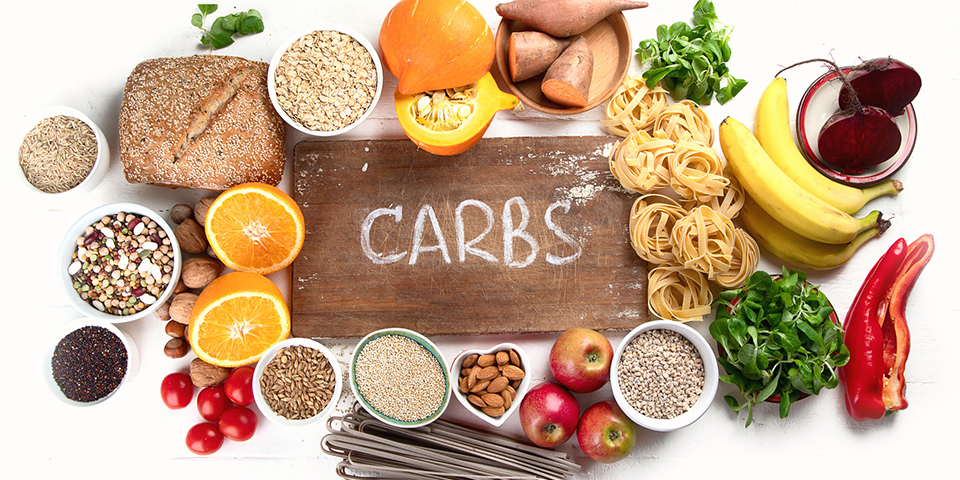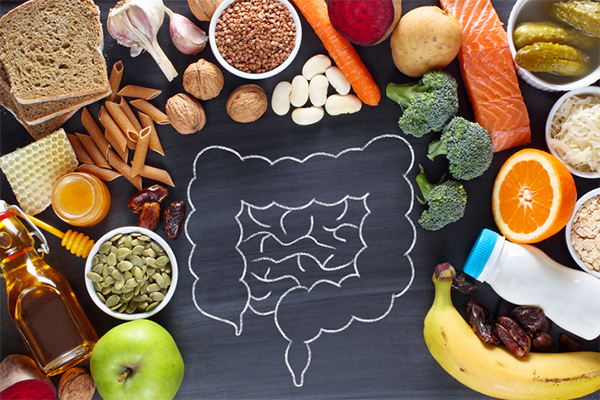If your net carbs matter more to you than your net worth, you might want to take a step back and reevaluate. This concept began as a trick for food manufacturers to market their products as “low carb,” and is now something many keto advocates recommend calculating.
But most nutrition experts say you don’t need to worry about how many net carbs you eat in a day. So what’s the deal? Here you will find everything you need to know about net carbs.
What are net carbs?
Net carbs are what’s left when you deduct from the total amount of carbs in a food the types of carbs your body doesn’t digest.
Net Carbs vs. Total Carbs
The difference between net carbs and total carbs comes down to the three basic types of carbohydrates — starches, sugar, and fiber — and how each is processed by the body.
Total carbohydrates
this is gross amount of carbohydrates in one serving of food, including the three basic types mentioned above. Whether digestible or indigestible, simple or complex, refined or unrefined, it counts toward the total.
net carbs
Some types of carbohydrates are not digested, which means they pass through your system without being converted into usable energy. Net carbs are what’s left after subtracting carbs that your body can’t digest.
For example, “your body handles fiber digestion differently than it handles sugar,” explains Krista Maguire, RD, senior nutrition manager at BODi.
“A portion of the fiber simply passes through your digestive system intact, so it’s less likely to cause a spike in blood sugar.” That’s why you don’t count fiber when calculating net carbs.
Do net carbs matter?
First things first: Carbohydrates are not inherently “bad.”
“Carbs often get a bad rap, but there are carbs that provide valuable nutrients, and then there are carbs that are basically empty calories,” Maguire says.
That being said, it is is It is important to watch your intake. Although they are an important source of fuel, carbohydrates are consumed quickly. broken down into sugarand any excess can be stored as fat.
The term “net carbs” is a marketing buzzword, which means it’s not formally recognized by the FDA or any other health organization. But they can help you identify the foods that are most friendly to maintaining normal blood sugar levels, since a “net carb” is any carbohydrate that can be converted to sugar.
How are net carbs calculated?
You don’t need a fancy net carb calculator, just take the total amount of carbs and subtract the grams of non-digestible carbs. What remains are the net carbs.
What types of carbohydrates are subtracted from the total?
There are three types of carbohydrates that can be deducted from your total carbohydrate intake to lower your “net carb” count.
Fiber
Dietary fiber passes through your digestive system without being broken down or absorbed. It also feeds the good bacteria in the gut and helps move food through your system more efficiently.
There are two types of fiber: soluble and insoluble.
Soluble fiber absorbs water, which can help you feel fuller. Examples include nuts, beans, seeds, oats, and some fruits and vegetables.
Insoluble fiber, which does not absorb water, can help speed food through the digestive tract. Examples include fruit and vegetable skins, brown rice, and grains.
Because fiber is not digested, under the “net carbs” approach it can be subtracted from the total carbohydrate count in a food. Every once in a while, you can even find a food with zero net carbs. This means that the fiber content “cancels out” all other carbohydrates.
resistant starch
Resistant starch has been found increase fat oxidation, which is why it has received a lot of attention as a possible miracle carbohydrate for weight loss. And like fiber, your body can’t break it down (that, Ahem, resists digestion), so it does not count toward the total carbohydrate.
A popular source of resistant starch is green banana flour. while you have 24 grams of carbohydrates per 30 g servingit is often claimed that 60 to 80 percent of your carbohydrates come from indigestible carbohydrates including resistant starch, so they are not thought to have much of an impact on blood sugar.
sugar alcohols
Sugar alcohols are made from natural sources such as corn starch, sugar cane, and whey. (And no, they won’t get you drunk.) You probably consume more of these than you think; they include common “sugar-free” sweeteners such as sorbitol and xylitol.
Unlike fiber and resistant starch, your body does digest sugar alcohols, but they don’t affect blood glucose levels as much as real sugar does.
While some manufacturers claim that sugar alcohols do not affect blood sugar at all, the University of California San Francisco Diabetes Teaching Center suggests splitting the difference and counting half the sugar alcohol content.
Here’s where it can get tricky: Some manufacturers may still subtract all sugar alcohol content from their advertised carb counts. So check nutrition labels carefully. If a product says it’s sugar-free but does have sugar alcohols, it can still affect your blood sugar. And because sugar alcohols can be harder for the body to digest, they could cause some digestive discomfort (gas, bloating, etc.).
Do whole grains have fewer net carbs?
whole grains they retain their outer shells, or brans, which are generally very high in fiber, so yes, whole foods tend to have fewer net carbs than their starchy white counterparts. Of course, the added fiber doesn’t completely cancel out carbs, so you still need to watch your portions.
But it’s important to note that net carbs aren’t the only thing to consider when choosing a food. There are many other reasons to eat whole grains.
When grains are refined, they are stripped of their fiber, vitamins, minerals, and other phytonutrients, but all of that good stuff is still found in whole grains.
whole grains too break down more slowly than refined carbohydrates, so they are less likely to spike your blood sugar.
Plus, all that fiber tends to keep the trains running on time, if you know what we mean.
What are “empty carbs”?
The term “empty carbohydrate” generally refers to carbohydrates that do not offer much nutritional value. Sugary drinks, white bread, candy, and alcohol fall into this category.
Empty carbs count toward your net carbs, but not all net carbs are empty carbs. There are many foods (fruits, vegetables, grains) that can have an effect on blood sugar, but they also offer many nutritional benefits.
What foods are low in net carbs?
Net carb counts are not always reliable. While fiber content information is readily available from the USDA, it can be difficult to estimate resistant starch content, which can change with the maturity of a food or even how it is prepared and chilled.
Different sources cite different amounts, although oats, legumes, and potatoes all contain substantial amounts of resistant starch, but here are some high-fiber foods you might consider adding to your diet:
- lentils Lentils are a great source of plant-based protein. contain almost 18 grams of protein per cupand 16 grams of fiber.
- Total carbohydrates per cup: 40 grams. Net carbs: 24 grams.
- Artichokes. One cooked artichoke contains 7 grams of fiber.
- Total carbohydrates per artichoke: 14 grams. Net carbs: 7 grams.
- raspberries. Raspberries are an excellent source of vitamin Cbut they also have enough fiber to cut your net carbs in half.
- Total carbohydrates per cup: 15 grams. Net carbs: 7 grams.
Should I count net carbs?
Maguire says there’s no need to worry about counting net carbs, even if you’re living with diabetes or trying the ketogenic diet. He American Diabetes Association advises that diabetics look at the total carbohydrates in food and monitor your blood glucose to see how different foods affect it.
Those on the ketogenic diet can only tell if they are in ketosis by testing for ketone bodies. “No one officially knows the impact fiber has on ketosis,” Maguire says.
If you’re concerned about your carbohydrate intake, talk to a registered dietitian. Otherwise, forget about net carbs.
“Balancing blood sugar doesn’t come from a mathematical equation,” says Maguire. “It’s easy to do by eating a balanced diet filled with naturally healthy foods that also provide a host of benefits beyond blood sugar balance.”






0 Comments